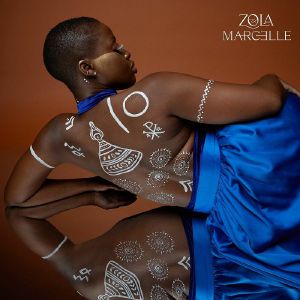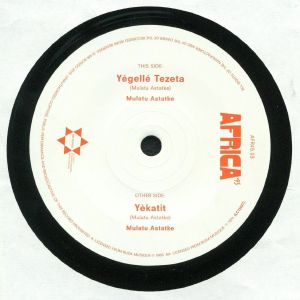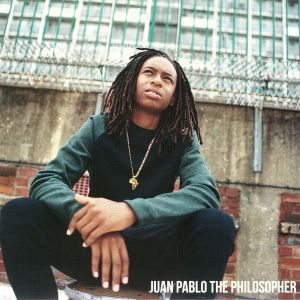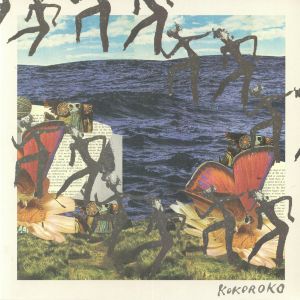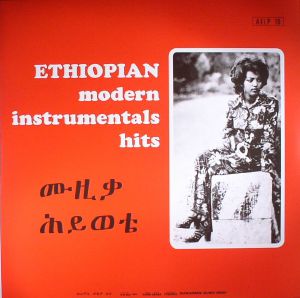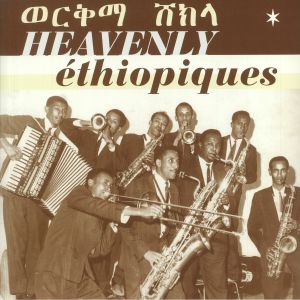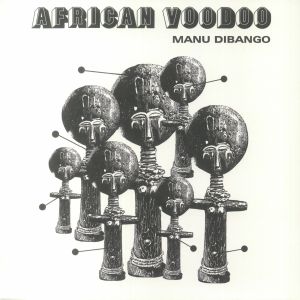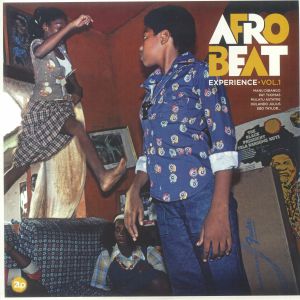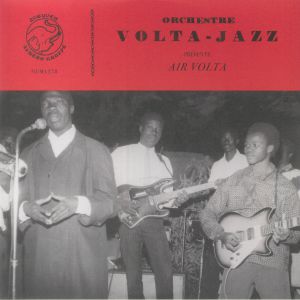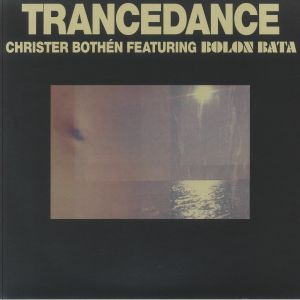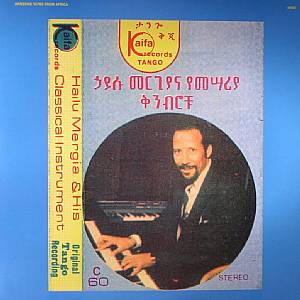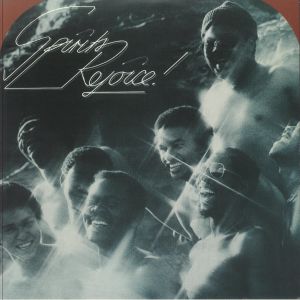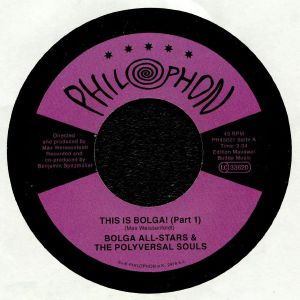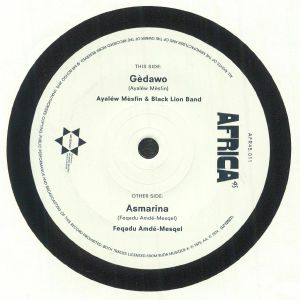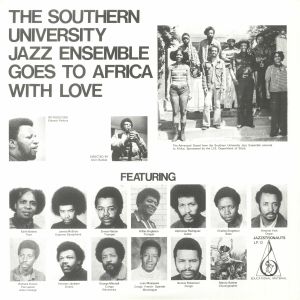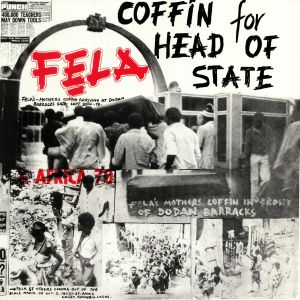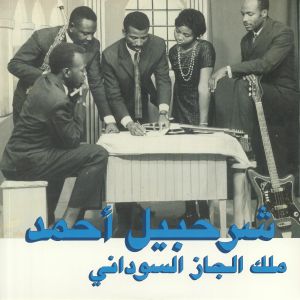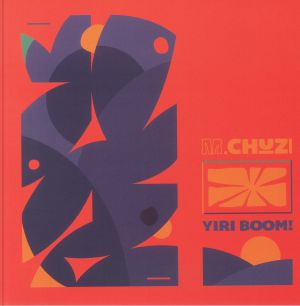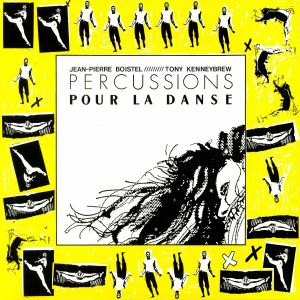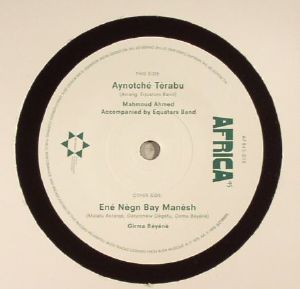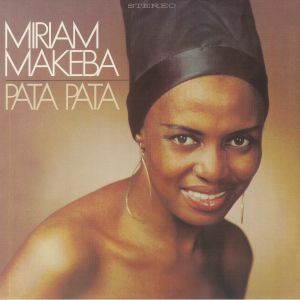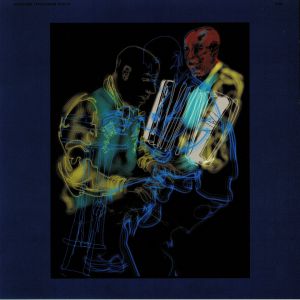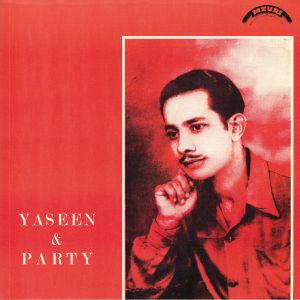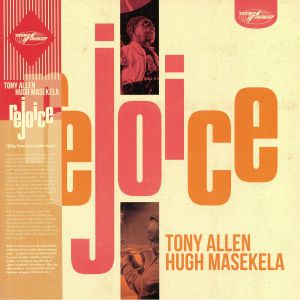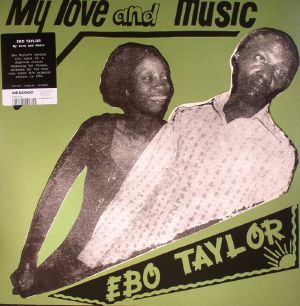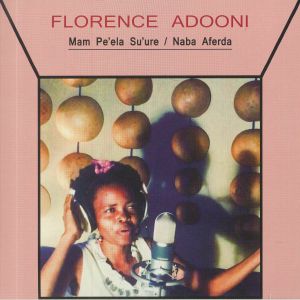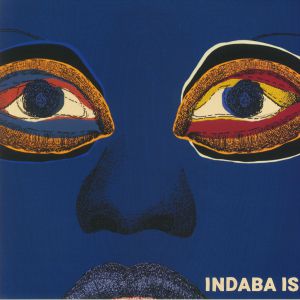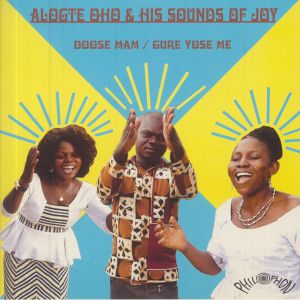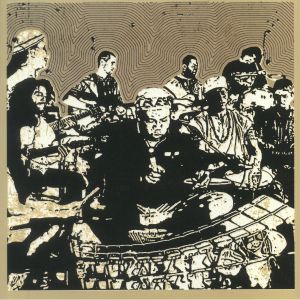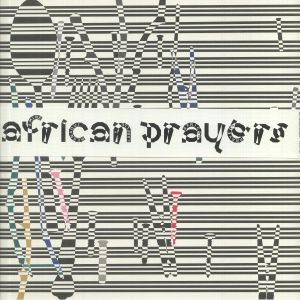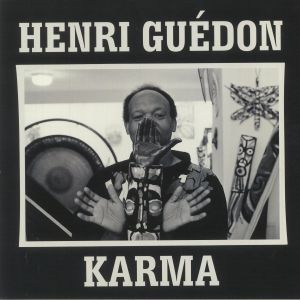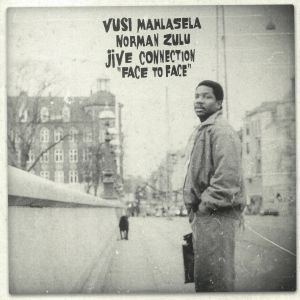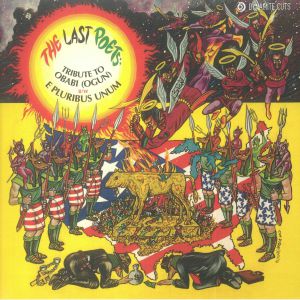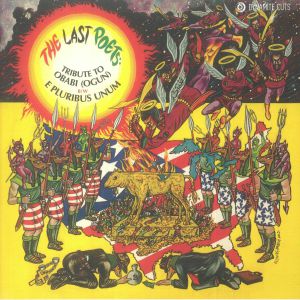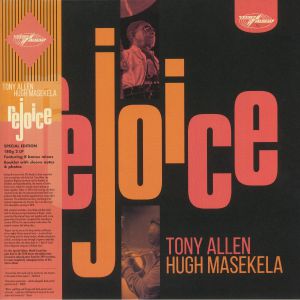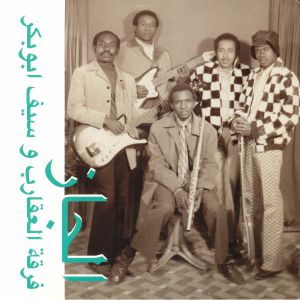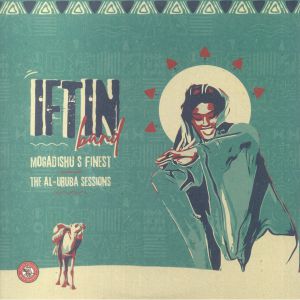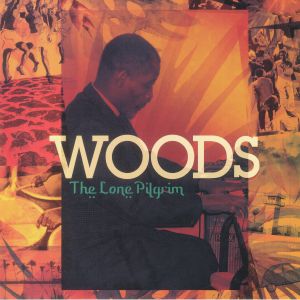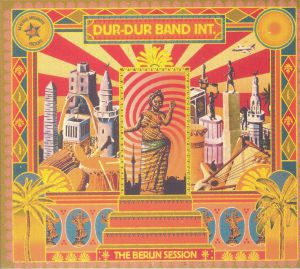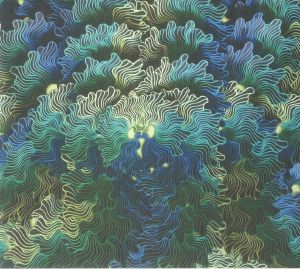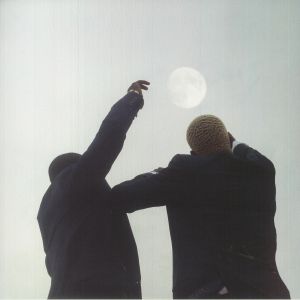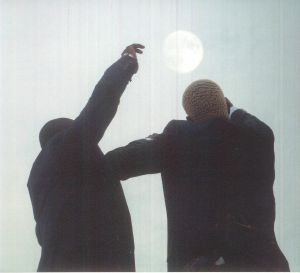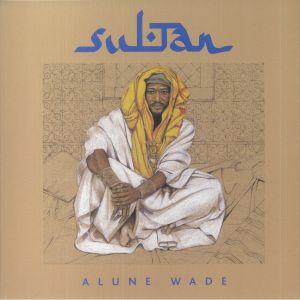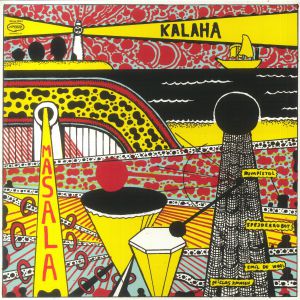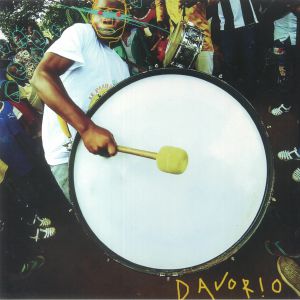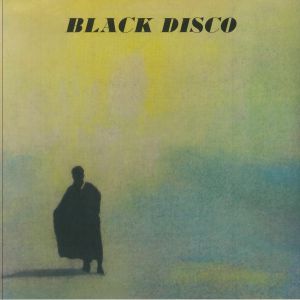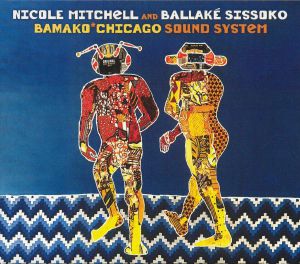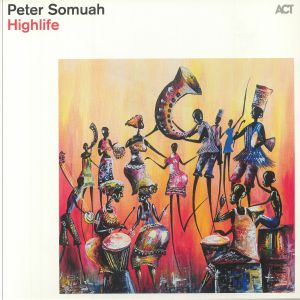Filter
アーティスト
レーベル
Featured
リリースタイトル
値段
International charts
Bestselling International vinylReview: British Bantu visual artist and musician Zola Marcelle shares her debut album, an ingenious ten-track record of ancestral musings, ethereal sound-dreamscapes and narrative vignettes, informed by soul, broken beat, and the musics of Zimbabwean Shona and South African Sotho. A riveting journey back through bloodlines and future-past hopes, Marcelle brings an impressively playful vocal and etheric attitude; opener 'Highlight' is an invitingly tender funky jazz primer, against which Zola speaks, outlining eternally recursive goals for life; the latter half of the record is more quelling, with 'Kgotso' building on the Sotho word for "stillness" to convey the later feeling of loitering in God's waiting room, while the B-side builds 'Saturn Drive' and 'Beyond' circle back to softly intoned Afro-beatifics.
… Read morePlayed by: Cyndi Handson
in stock $21.56
in stock $12.00
in stock $17.74
Played by: Mukatsuku Records Chart, JimmyTheTwin, AfroBase (Radio Chart), RUSTAM OSPANOFF., Juno Recommends Broken Beat Nu Jazz, Galletas Calientes, THE REFLEX, Afro Beat Foundation, NICOLA CONTE, Ex-Friendly (Truth & Lies Music), Jenifa Mayanja Bumako Recordings, Dee Brown (Creak Inc.), Secretsundaze, Miles Away Recs
… Read more! low stock $18.01
VARIOUS
Ethiopian Modern Instrumentals Hits (reissue) (180 gram vinyl LP)
Cat: HS 092VL. Rel: 30 Apr 21
Review: The fact that Ethiopian Modern Instrumentals Hits has been reissued on numerous occasions over the last two decades is testament to the enduring quality of this most obscure of compilations. It first appeared on Amha Eshete's Amha Records label way back in 1972, and was the imprint's tenth and final album. An all-star affair featuring many of Eshete's most trusted musicians and producers, its ten tracks gleefully join the dots between dusty rhythm and blues, jazz, funk, soul, Brazilian rhythms and African grooves. It's genuinely "all killer" and "no filler", which may go some way to explain Heavenly Sweetness's decision to put it out again.
… Read more in stock $20.47
VARIOUS
Heavenly Ethiopiques: The Best Of The Ethiopiques Series (gatefold 2xLP)
Cat: HS 107VL. Rel: 24 Nov 21
Review: The first Best of on vinyl from the ethiopiques series. Francis Falcetto, the founder of the series (already 28 Cds available) and THE specialist of Ethiopian music pick up a selection of the best tracks of the series. He opened his large collection of pictures, vinyls and memorabilia to make the artwork of this double LP gatefold. The perfect introduction to the world of Ethiopian music but the specialists will also discover some rare and unknown tracks and artists.
… Read more in stock $24.01
Review: Manu Dibango's grooves will never dull with time. The Cameroonian sax man made some of the most infectious, feel-good funk to ever transmit from the African continent, and here's one of his heavy-hitting high-watermarks, reissued by Soul Makossa. African Voodoo originally came out in 1972, a year that saw nearly all Dibango's most revered jams cut loose on an unsuspecting public. These sessions were recorded in France with Yvan Julien on trumpet, Slim Pezin on guitar, Jacques Bolgnesi on trombone and Lucien Dobat on drums to name but a part of the line-up, but of course it's Dibango holding court on the vibes, marimba, sax and organ who brings the unmistakable magic to the music.
… Read more in stock $24.56
Review: A new week means yet another new compilation from Wagram. The French label has become expert at myriad different genres from staples like house and techno to more esoteric world genre niches. This time out they launch a new series that looks into the rich sounds of Afrobeat, first pioneered by the likes of Fela Kuti and his drummer Tony Allen. Neither of them feature here but the four sides of tunes we do get all make for a deep dive into this compelling rhythmical music.
… Read morePlayed by: Afro Beat Foundation
in stock $31.39
Air Volta (limited heavyweight transparent red vinyl LP)
Cat: NUMLPC 11278. Rel: 01 Jul 22
Played by: Juno Recommends International
in stock $27.02
Cat: BLACKTRUFFLE 118. Rel: 30 May 24
in stock $28.11
Cat: ATFA 006LP. Rel: 02 Jul 13
in stock $22.11
in stock $34.11
Review: German-Ghanaian group the Polyversal Souls have previously collaborated with a number of bands and solo artists from West Africa, so this hook-up with Northern Ghanaian outfit the Bolga All Stars - a collective made up of leading local kologo and frafra-gospel singers and musicians - should not come as much of a surprise. Separated into two parts for the seven-inch release, the track blends the Polyversal Souls' lolloping, late '60s style Afro-funk grooves - complete with fuzzy, period style production - and sharp horn section with glistening guitars, snaking solos and fine vocals from the Bolga All Stars. It's one of the Polyversal Souls' finest releases yet, and that's saying something.
… Read more in stock $9.81
Gedawo (7")
Cat: AFR 45011. Rel: 24 Feb 16
in stock $9.81
Goes To Africa With Love (reissue) (2xLP + booklet)
Cat: NA 5244LP. Rel: 12 Jun 23
Played by: RUSTAM OSPANOFF., Juno Recommends Jazz
in stock $36.01
Coffin For Head Of State (LP + insert)
Cat: 2036. Rel: 05 Mar 18
in stock $22.37
The King Of Sudanese Jazz (LP + booklet)
Cat: HABIBI 013. Rel: 16 Jul 20
Review: For their latest essential primer on Sudanese music, Habibi Funk has chosen to focus on singer Sharharbil Ahmed, an artist whose desire to update Haqiba, a popular secular style of vocal-driven music, made him a pivotal figure in the 1960s. In his home country, Sharharbil became known as the "king of Sudanese jazz", a distinctive style that melded local instrumentation and vocals with jazz horns and heavy, guitar-driven grooves that drew much inspiration from rock and roll, surf-rock and rhythm and blues. The compilation does a great job in showcasing this insatiable, effervescent sound, showcasing the very best of Sharharbil's golden period output, most of which has never before been released outside of Sudan.
… Read more in stock $21.82
Played by: Juno Recommends International
in stock $21.82
Percussions Pour La Danse (LP + insert)
Cat: LER 1016. Rel: 29 Jun 22
in stock $28.66
Aynotche Terabu (limited 7")
Cat: AFR 45015. Rel: 14 Jun 16
Review: The Afro 45's / Mr Bongo lineage has produced some of the hottest, most sizzling funk reissues from around the globe, and this tasty two-header from Mahmoud Ahmed - who has appeared heavily on Portland's monumental Mississippi label - and Girma Beyene, two greats of the African soul / funk heritage. Ahmed's "Aynotche Terabu" is backed by the Equators Band, and the man's voice rides like crispy waves over the dusty percussion and charging trumpets of the outfit; Beyene appears with a less moody but equally brilliant jazz-leaning piece named "Ene Negn Bay Manesh", bringing through the spirot of greats such as Mulatu and the rest of the African luminaries.
… Read more in stock $9.81
Review: Recorded in New York in 1966, Miriam Makeba's "Pata Pata" - her first for the legendary Reprise Records imprint - has long been considered one of the most important and influential South African albums of all time. Strut certainly thinks so and has offered up a "definitive version" that contains both mono and stereo mixes of the album, alongside new sleeve notes that tell the singer's remarkable story in vivid detail. Musically the set is rooted in jazz, but also incorporates sounds, rhythms and instrumentation not only reflective of Makeba's home country, but also nods to American soul, Latin rhythms and calypso (the latter showcasing the influence of her mentor, Harry Belafonte).
… Read morePlayed by: AfroBase (Radio Chart), Kalita Records
in stock $23.75
Played by: Adam isbell -Racubah Sound System
in stock $20.47
in stock $24.01
Rejoice (180 gram vinyl LP with obi-strip)
Cat: 405053 855749. Rel: 20 Mar 20
Review: Two titans of African music come together for a collaboration that will sadly never be repeated after the passing of the late Hugh Masekela. Allen's instantly recognisable drumming and Masekela's iconic trumpet are a match made in heaven - after all their paths first crossed back in the 70s thanks to Fela Kuti's galvanizing energy. Forget the throwback stuff trying to capture the spirit of the originators, this IS the originators sounding cool and deadly in every way. Funk lovers, Afrobeat heads, curious ears and dancing souls take heed - this right here is an unmissable transmission from two grandmasters in their field.
… Read more in stock $25.65
Review: A true Ghanaian legend, Taylor's fusions of traditional Ghanaian music with jazz, funk, reggae and soul helped set the blueprint in the early 70s and here's where it all began: 1975, a highly limited debut on Gapophone Records. Reportedly pressed only 500 times due to the country's dictatorship, it's a beautiful introduction. Sweet-tasting highlight with strong reggae references throughout, highlights include the epic 13 minute jam "Maye Omama" and the ebbing, flowing rocksteady soul of "Will You Promise". Still active, teaching and playing at the age of 80, Taylor's music has matured just as well as he has.
… Read more in stock $22.11
Review: Seriously good modern high-life action here, as Philophon regular Florence Adooni joins forces with some exceptional musicians to lay down two high-quality musical treats. Our pick of the pair is superb A-side 'Mam Pe'ela Su're', a "typical Frafra-Gospel hymn" that Adooni and her accomplices have turned into a deliciously soulful and groovy slab of highlife (think glistening, Ebo Taylor style guitars, shuffling drums and righteous horns). Turn to the flip for 'Naba Aferda', a homage to the chief of her home village that offers a slightly heavier and more raw-sounding take on the highlife sound that's so jaunty and carnival-friendly that it could pass as an obscure Brazilian recording from the late 1970s.
… Read more in stock $10.91
Review: South African jazz-influenced sounds take the lead on this new companion from the tireless Brownswood label. The collection explores the linage of the sounds and communities who helped it evolve as is spread across the country meaning plenty of subtle synths are taken in. The eclecticism is what makes this so essential as the music ranges from the hugely spiritual (from The Brother Moves On) to more late night and inmate (tasks to a fine entry from Sibusile Xaba) via the neo-soul drenched styles of Thandi Ntuli's beautiful 'Dikeledi' which is a particular highlight.
… Read more in stock $13.37
Review: Alogte Oho & His Sounds of Joy's debut album Mam Yinne Wa was a real triumph. A sensuous fusion of international rhythms, gospel vocals and jubilant vibes that was an instant hit with lovers of world music. His new single is said to be a teaser for a seance upcoming album and is another masterpiece from Frafra Gospe, a legend of this genre. First up is 'Doose Mam,' a repetitive rhythm that goes right for the hips. The big horns bring the character and sensuous vocals are the icing on the cake. On the flip is 'Gure Yose Me,' a tune rooted in reggae rhythms thanks to the work of Josie Coppola, Europe's No.1 reggae drummer.
… Read morePlayed by: AfroBase (Radio Chart), Juno Recommends International
in stock $12.00
Played by: Juno Recommends International
in stock $22.37
African Prayers (gatefold white vinyl LP + MP3 download code with obi-strip)
Cat: LP 179LP. Rel: 01 Apr 22
in stock $25.10
Review: Musician, painter, sculptor and ceramist Henri Guedon was known affectionately as the grandfather of modern music from the French Antilles. His standout album angst more than a dozen was 1975's Karma. An OG copy is hard to find and pricey when you do, so thankfully Outre National Records have secured the rights to this limited edition and remastered reissue. It is an impossibly lively fusion of soul, funk and world, jazz-rock and reggae, Afro-Cuban rhythms and indigenous African sounds like beguine and gwo ka. Guedon's vocals ride over all the many bristling drum and instrumental tracks to make for a real carnival sound.
… Read morePlayed by: AfroBase (Radio Chart), Juno Recommends International
in stock $25.39
Face To Face (LP + insert)
Cat: STRUT 211LP. Rel: 26 Jan 23
Review: Acclaimed South African folk singer Vusi Mahlasela joined forces with singer songwriter Norman Zulu as well as the superb Swedish jazz and soul collective Jive Connection for this album back in 2002. It was thought to be a lost recording until it recently showed up and now gets fully revived by Strut. There are strong political links between these countries which no doubt adds weight to this musical link up. It is a great exchange of cultures from parables to laments on child abuse to tunes that fuse reggae, jazz and post-punk with township styles.
… Read morePlayed by: AfroBase (Radio Chart)
in stock $16.10
Review: Dynamite Cuts have pulled out another classic from the Afro-jazz canon here. It's one of the many gems from the catalogue of The Last Poets and was sampled by some big hip-hop artists back in the day including The Jungle Brothers. The original track is some ten minutes long but here it has been edited down to a short and sharp for minutes for an exclusive 7" pressing. Soon as you drop the needle you will be hypnotised by the saxophone and vocals as the energetic groove lifts you up and away.
… Read more in stock $16.10
Tribute To Obabi (Ogun) (hand-numbered red marbled vinyl 7" limited to 150 copies)
Cat: DYNAM 7114RM. Rel: 06 Jan 23
Played by: Dynamite Cuts
in stock $19.37
Rejoice (Special Edition) (gatefold 180 gram vinyl 2xLP + booklet with obi-strip)
Cat: 405053 8647921. Rel: 22 Oct 21
Played by: DJ Kobayashi, Juno Recommends International
in stock $33.02
Jazz Jazz Jazz (LP + booklet)
Cat: HABIBI 0091. Rel: 08 Nov 18
Review: Habibi Funk co-founder Jannis Stuertz first came across "the Holy Grail of Sudanese funk", Saif Abu Bakr and The Scorpions "Jazz, Jazz, Jazz", while browsing eBay listings a few years back. His interest piqued, he took a trip to Sudan to track down the musicians who had made a ridiculously rare LP that was changing hands for thousands of pounds online. Some four years later, his wish to reissue the set has finally come through. It was originally recorded in Kuwait in 1980 and brilliantly joins the dots between American funk, soul and rhythm and blues, traditional Sudanese vocals and rhythmic arrangements, and even a dash of Congolese soukkous. It's the first full album Habibi Funk has reissued, and with good reason: it's near perfect from start to finish.
… Read more in stock $26.75
Mogadishu's Finest: The Al Uruba Sessions (gatefold 2xLP + poster + MP3 download code)
Cat: OSTLP 013. Rel: 15 Dec 22
Deriskaagi Waa Kugu Jahowareeray (Your Neighbor Is Confused About You) (feat Axmed Sharif Killer & Siteey Qosol Wanaag) (5:21)
Xiriirkaagii Aan Kusoo Xarakeeyee (Let's Celebrate Our Relationship) (feat Siteey Qosol Wanaag & Aweeys Qaamis) (7:27)
Wiilkii Aan Ku Waashee (The Boy Who Drives Me Crazy) (feat Shukri Musse & Axmed Sharif Killer) (6:19)
Review: Iftin is a band from Somalia that has a cult status amongst those who know. This is the first-ever retrospective of their music and it has taken seven years to get together. The music is taken from cassettes recorded between 1982 and 1987 at Al-Uruba hotel's secret studio. They were often performed for crowds in the basement of Somalia's national theatre and mix up Banaadiri rhythms from the south of Somalia, vocalists from Mogadishu and reggae-styled guitar riffs from Dhaanto all powered by brass that bends the traditions of Asia, the Middle East, and Africa. Truly world music.
… Read more in stock $22.65
in stock $23.29
in stock $13.65
in stock $9.71
Review: Mande jazz ensemble Balimaya Project return with much anticipated second album When The Dust Settles on New Soil in partnership with Jazz re:freshed. The group has a magical big band sound that is expanded on here with plenty of personal expression running the emotional gamut from rage to love, grief to joy. Once again they combine the African rhythms of their roots with contemporary London jazz energy as they celebrate Black power and community togetherness. Composer, arranger and Djembe player Yahael Camara Onono leads the group with Afronaut Zu, Obongjayar and Fassara Sacko adding vocals over the advantageous folkloric rhythms.
… Read morePlayed by: AfroBase (Radio Chart), Juno Recommends International
in stock $25.10
Review: Two years on from the release of their fantastic debut album, Wolo So, Balimaya Project returns with more inspired fusions of polyrhythms, percussion, heady horns, "virtuosic kora styles", contemporary jazz and traditional Mande music. It's a uniquely sweet, deep and gently sun-soaked sound - all emotive vocals, tapped out tribal rhythms, frazzled solos, dreamy acoustic guitars, glistening highlife-influenced electric guitars and sultry, soulful intent. The London-based collective has long been hard-to-pigeonhole, and it's this impeccably realised but sonically adventurous approach - along with the quality of their musicianship - that's been the key to their success. When The Dust Settles will only enhance their rising reputation - it really is that good!
… Read more in stock $12.29
in stock $23.75
Played by: Afro Beat Foundation
in stock $25.39
in stock $10.03
Review: The NGO Permlay de Gozhou-Zagna - a village in Ivory Coast - Italian musician Samuele Strufaldi and Musica Macondo Records all come together for this sublime collaborative album. It's a real gem of a record that is which is sure to excite fans of Afro, international and worldly broken beats whether old or new. It's an earthy, organic mix of folk mutterings and traditional instrumentation with funky rhythms and jazzy sax melodies that all brim with life and are packed with richly layered percussion. Proceeds from its sale will go towards a new community library and space in the village.
… Read more in stock $30.02
Review: With a Yamaha organ and a vision, South African artist Pops Mohamed embarked on his musical journey in the mid-1970s as the bandleader and composer of Black Disco. He crafted an enthralling blend of chill-out jazz infused with futuristic drum machine sounds and spiritual nuances. His celestial organ melodies were complemented by two of the most esteemed session musicians on the South African scene: saxophone and flute virtuoso Basil Coetzee, renowned since 1974 for his solo on the hit 'Mannenberg,' and Sipho Gumede, the prodigious bassist already making waves among the veterans of the industry. Initially backed by polyphonic beats from Mohamed's electric organ and later incorporating a live drummer, Black Disco forged a distinctive sound, producing a trilogy of pioneering albums in a creative surge between 1975 and 1976. This first full reissue of their debut album, sourced from the original masters, captures the essence of their innovative spirit and showcases their groundbreaking contributions to the musical landscape. This release embodies the group's vibrant creativity and timeless artistry.
… Read morePlayed by: Juno Recommends Jazz
in stock $25.92
Cat: FPER 60.2. Rel: 25 Sep 24
Played by: Juno Recommends International
in stock $19.10
in stock $23.75
Review: Pops Mohamed's Black Disco reissues from Afrodelic offer a rare glimpse into mid-1970s South African jazz fusion. The 1975 self-titled debut features Mohamed's cosmic organ, complemented by sax and flute maestro Basil Coetzee and bassist Sipho Gumede. Their interplay creates a blissful downtempo experience, highlighted by the innovative use of a drum machine and deeply immersive improvisation. The album's tranquil vibe and cosmic soundscapes showcase Mohamed's unique approach to chill-out jazz with spiritual undertones. The 1976 follow-up, Black Disco 3, continues this journey, with Peter Odendaal and Monty Weber adding to the ensemble. The album evolves the New Age lounge aesthetic into more adventurous jazz territory. "Spiritual Feeling" is reimagined as 'Spiritual Feeling Riding the Blue,' and the centerpiece, 'Dawn,' is a ten-minute, flute-driven exploration that underscores the band's evolving sound. Both albums are reissued internationally for the first time, meticulously sourced from the original analogue tapes, preserving the rich textures and innovative spirit of Mohamed's groundbreaking work.
… Read more in stock $25.92

 USD
USD






